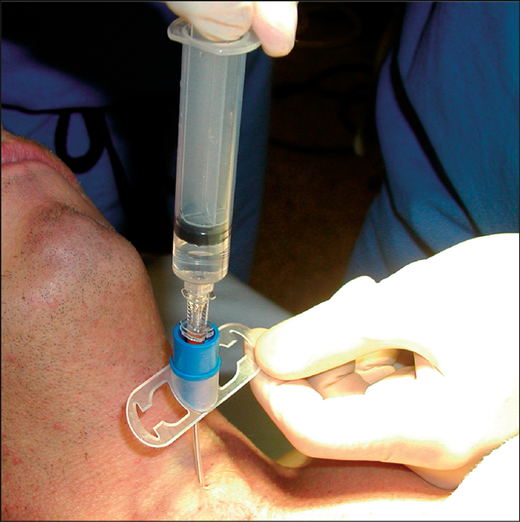Technique
- Preparation
- Fully extend the neck
- Perform the laryngeal handshake to identify the CTM
- Consider ultrasound to identify trachea, CTM
Should not delay procedure in emergency situation.
- Insertion
- Infiltrate the neck with 1-2ml of 2% lignocaine in an awake patient
- Connect the cannula to a saline-filled syringe
- Insert the cannula through skin towards the cricothyroid membrane, aspirating as the needle is advanced

- Position is confirmed via capnography
- At this point jet ventilation can be performed if required
- Post-procedure
- Cannula can be left in situ to use as a rescue device if required
References
- Frerk, C., Mitchell, V. S., McNarry, A. F., Mendonca, C., Bhagrath, R., Patel, A., … Ahmad, I. (2015, December 1). Difficult Airway Society 2015 guidelines for management of unanticipated difficult intubation in adults. British Journal of Anaesthesia. Oxford University Press. https://doi.org/10.1093/bja/aev371
- D. J. Ross-Anderson, C. Ferguson, A. Patel; Transtracheal jet ventilation in 50 patients with severe airway compromise and stridor, BJA: British Journal of Anaesthesia, Volume 106, Issue 1, 1 January 2011, Pages 140–144, https://doi.org/10.1093/bja/aeq278
- Gulleth Y, Spiro J. Percutaneous Transtracheal Jet Ventilation in Head and Neck Surgery. Arch Otolaryngol Head Neck Surg. 2005;131(10):886–890. doi:10.1001/archotol.131.10.886
